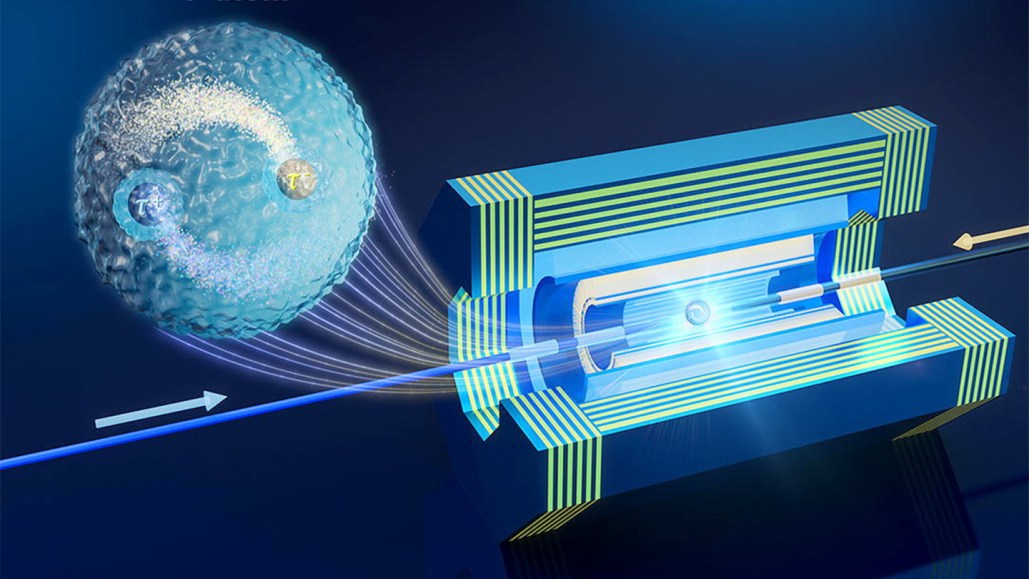Researchers Suggest Search for Unidentified 'Tauonium' Atoms

Scientists have suggested the existence of a new type of atom, one that doesn't have a nucleus or electrons. This hypothetical atom is known as Tauonium, which is also referred to as "ditauonium" or "true tauonium," and it would be composed of a negatively charged tau lepton and its positively charged antimatter counterpart, an antitau.
Tau leptons are akin to electrons and carry about 3,500 times the mass of an electron, making it heavier than a proton. In the 1950s, scientists discovered an atom named positronium, which is made up of an electron and its positively charged antiparticle, a positron. Tauonium, should it be discovered, could be considered a more substantial version of an atom.
The proposal by physicists suggests that tauonium could be discovered by crashing electrons and positrons together at a hypothetical future particle collider designed to generate tau leptons. Physicist Jing-Hang Fu, of Beihang University in Beijing, and his team suggested that facilities capable of producing these particle collisions could potentially discover tauonium within a year of initiation. The team suggests focusing on the proportion between the likelihoods of two differing types of particle interactions in said collisions to decrease experimental ambiguity.
Should tauonium be discovered, it could provide fresh insight into quantum electrodynamics, the physics theory that explains electrically charged particles. This is because, without the usual atomic nucleus complexity, tauonium could serve as an ideal experimental subject. The analogous positronium has already contributed to testing this theory.




